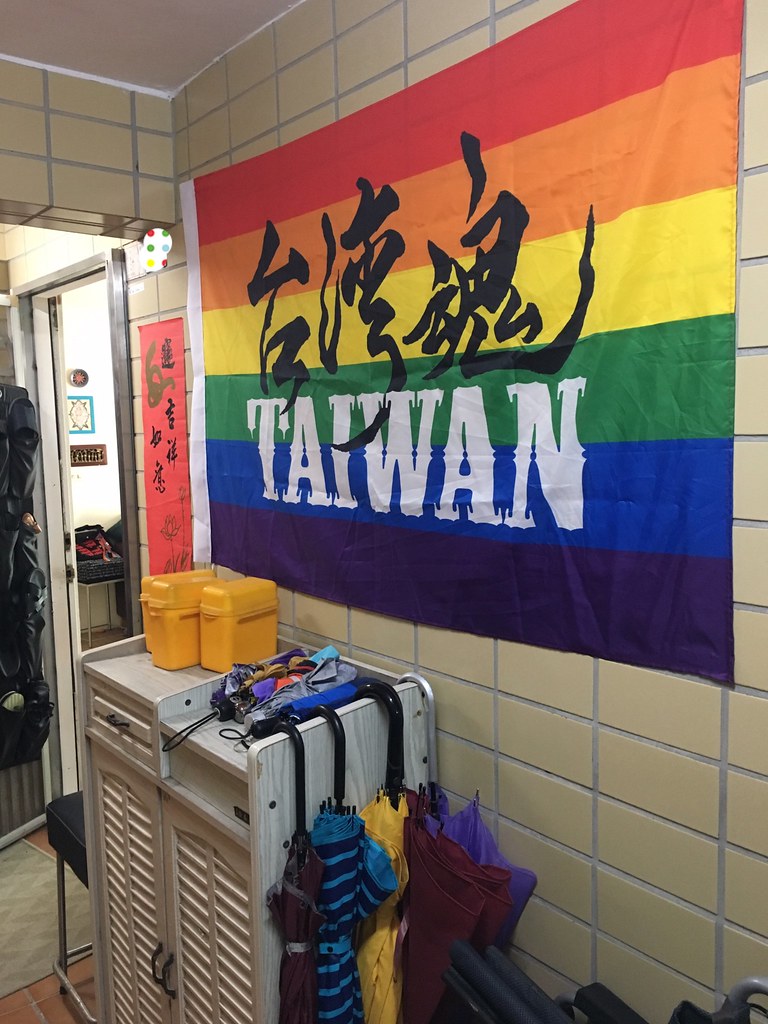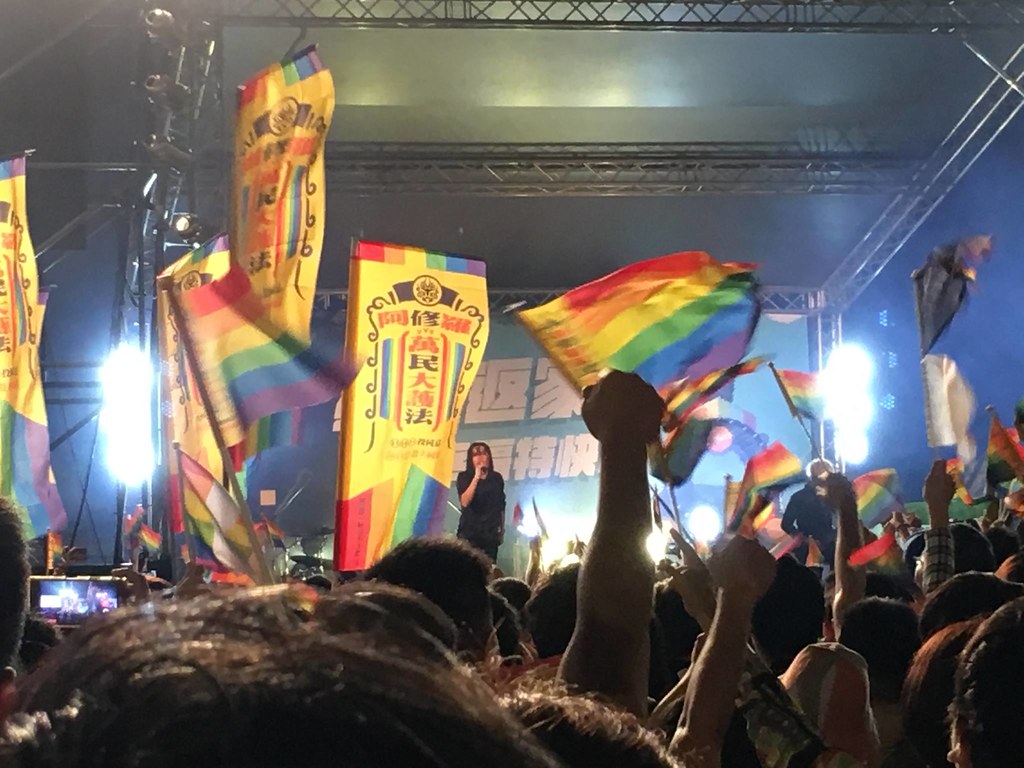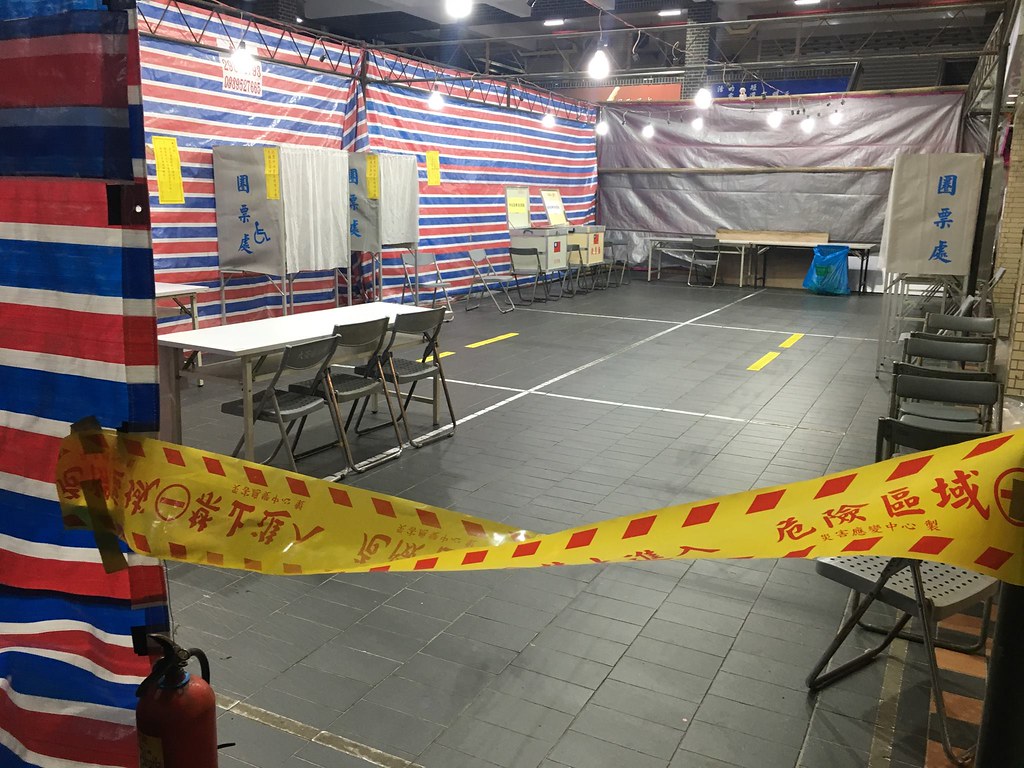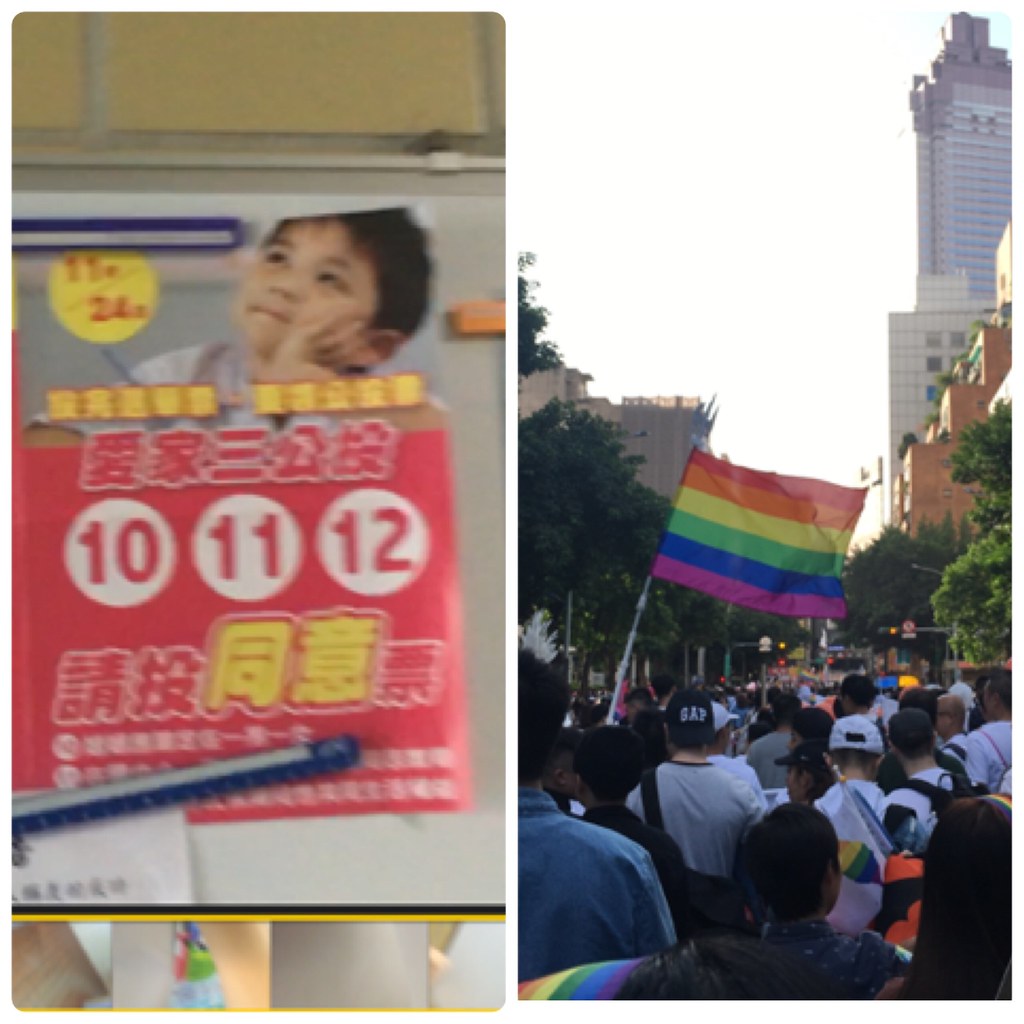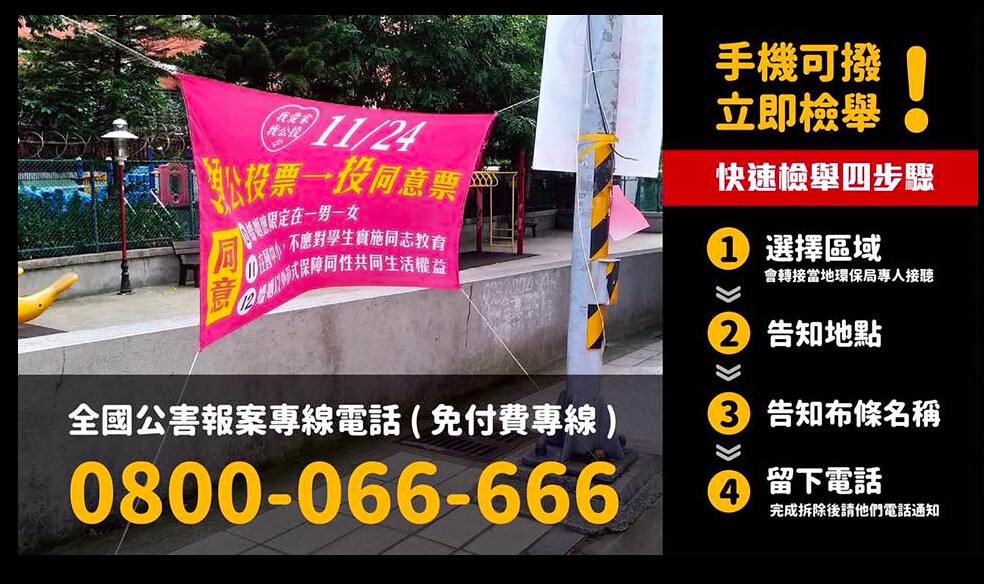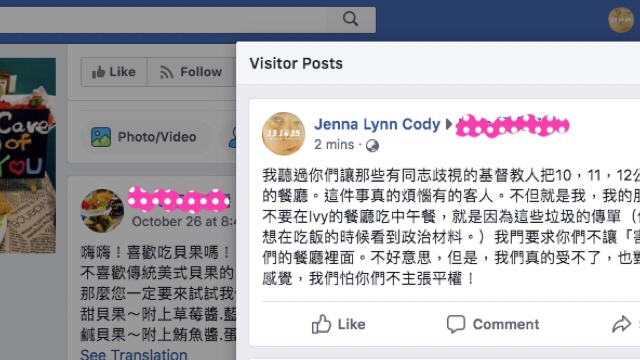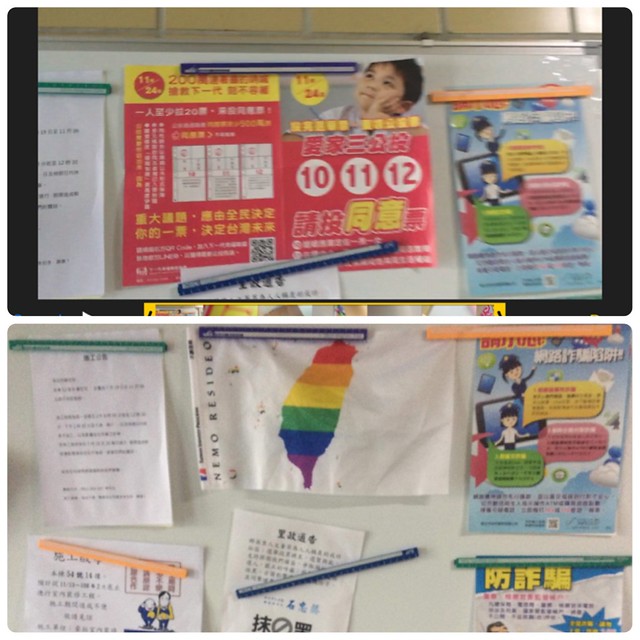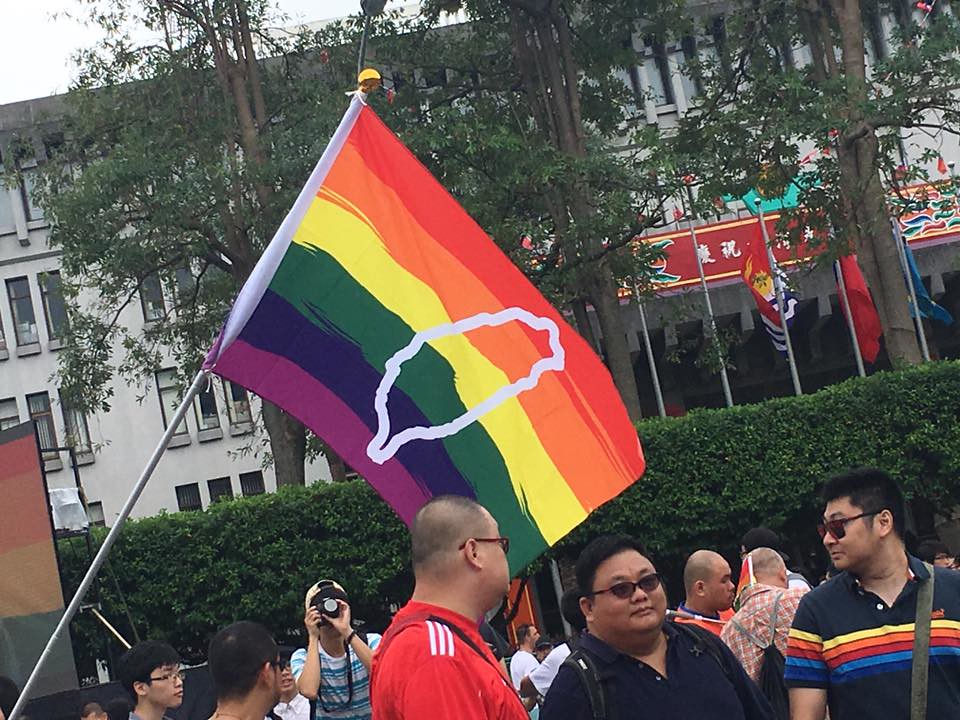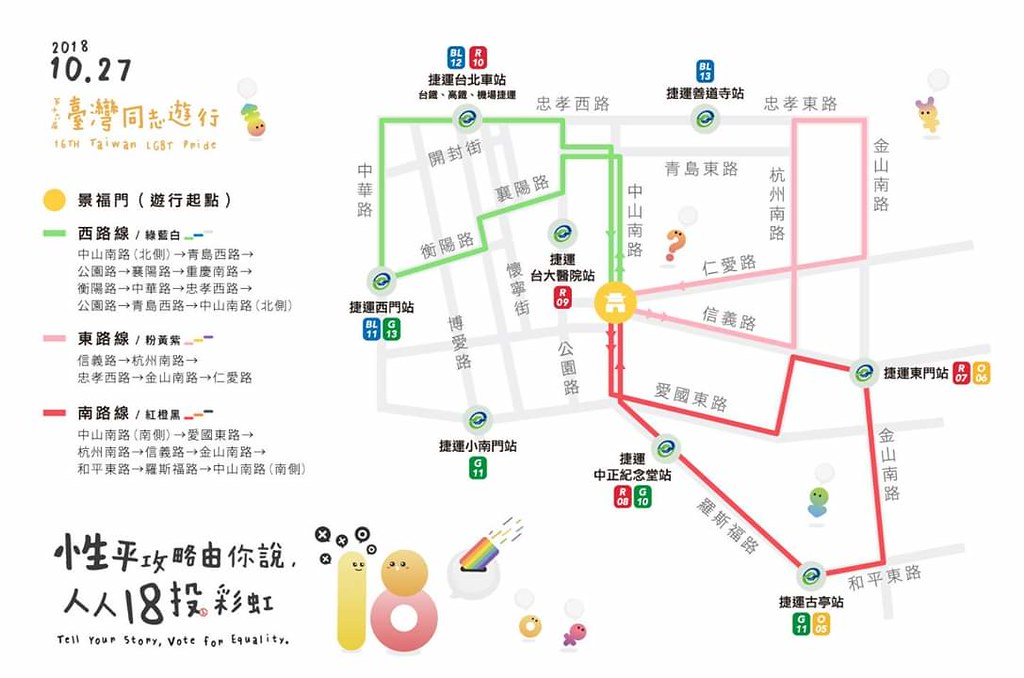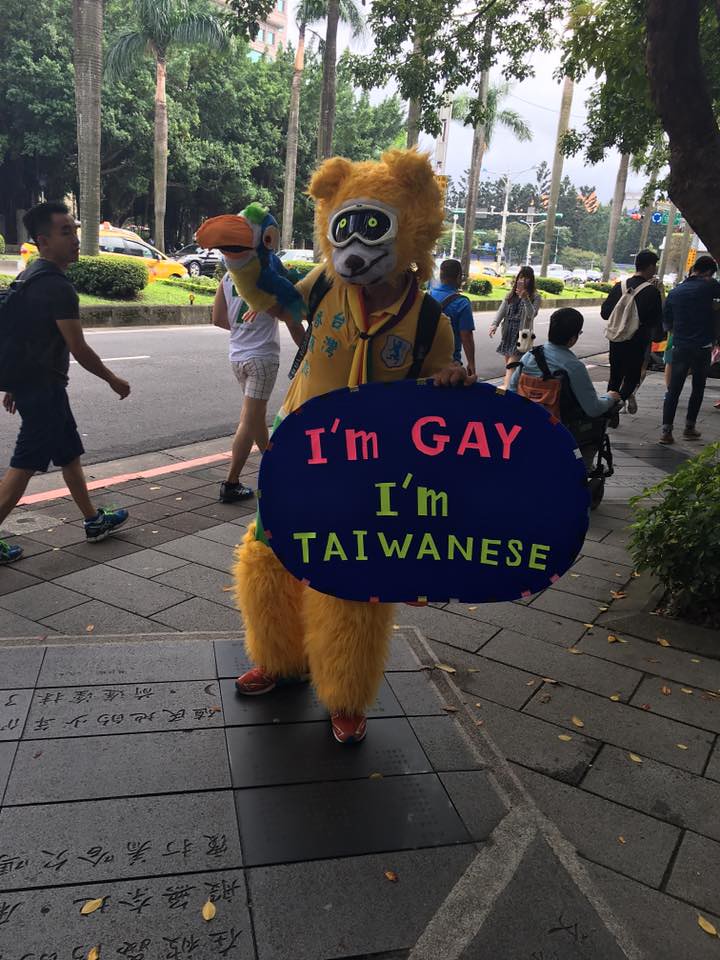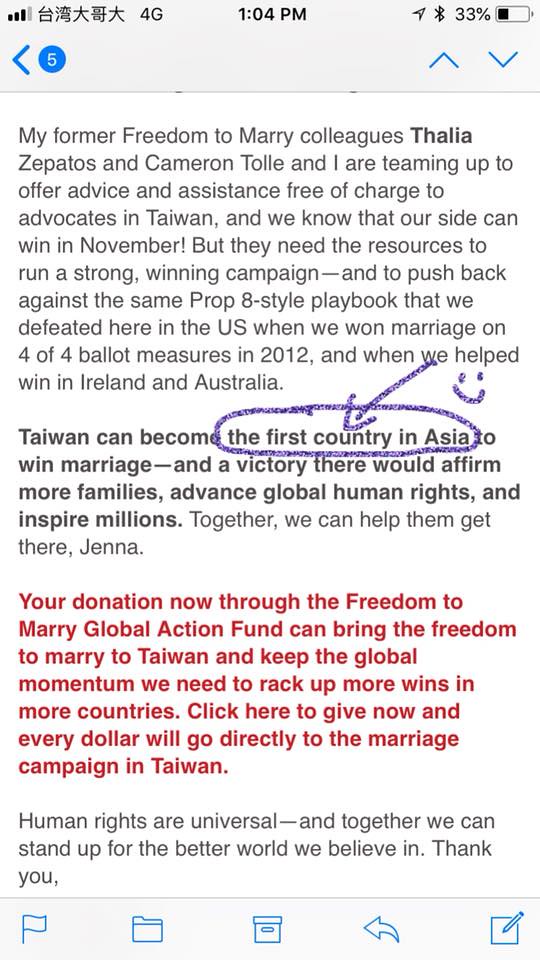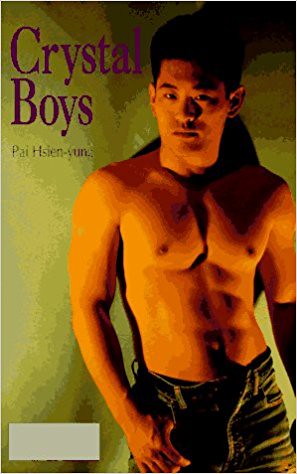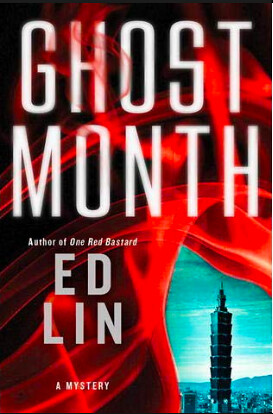 |
| Ghost Month |
Taiwan, you monsoon-pissed on yam of the Pacific Rim! How many nations have sought and fought to possess you in a game of hot sweet potato! The Republic of China, the diplomatically shunned nation of my birth! You seismically challenged tiny leaf trembling at the real China's doorstep!
This is the first half of the absurdly angry screed that Jing-nan, the protagonist of Ed Lin's Ghost Month, published in his high school yearbook. The tone is perfect: high-school-aged Jing-nan's contempt for his homeland is real, and yet also absurd in the way only angsty high-schoolers can get away with.
This comes several chapters after Jing-nan admires the country the Taiwanese have managed to build in the face of every obstacle facing them, not least of all an angry China, but several chapters before he admits to having called the place "stupid Taiwan". In between, he reckons with his views on religion (also stupid according to him, but maybe it's not great to be in everyone's face about how dumb their beliefs are all the time?), muses on everything from architecture to rule of law, and compares Taipei during the day and at night (he prefers night). An image of the Tamsui River at night cuts across these metaphors: looking at it late at night, conflicting currents render the water as slow black sludge trudging in one direction, and colorful vibrancy swooshing in another.
I found this to be the perfect novel to read while I recovered from a particularly severe head cold: literally, but also metaphorically. I picked it up two days after 2018 midterm elections here, where the moving currents of my own feelings about Taiwan were in the greatest conflict they'd been in years. They still are. (And I'm still recovering from the head cold.)
To be blunt, Jing-nan doesn't like Taiwan very much. He doesn't seem to hate everything about it, but he's clearly far from happy with his own existence here. He's trapped carrying on the family business (in more ways than one), and feels hemmed in by the superstitious beliefs of people around him. He feels assaulted by bad Asian pop music (his own musical tastes, specifically for Joy Division, play an important atmospheric and symbolic role in the book) and cornered by soulless office buildings and high-rises on one side, and hideous illegal shanties on the other.
His malaise runs deep - though he does eventually come to terms with it - whereas my own was a season of ridiculous optimism capped with a feeling of being absolutely, devastastingly crushed. This past weekend I had hoped the people would not vote to remain a 'trembling leaf' at China's doorstep, but to continue to stand up for themselves. Instead, newly-elected KMT mayors are talking about doing an end-run around the national government and recognizing the 1992 Consensus on their own. (These elections were not a referendum on how Taiwan feels about China, but try telling the rest of the world that.) I had hoped they'd recognize stupidity for what it was: either by those pink-shirted anti-gay jerks or Kaohsiung mayor-elect and guy who beats people up for no reason, Han Kuo-yu. Instead they voted for hate and idiocy.
This country really has accomplished so much despite every obstacle set against it, from geography to military dictatorship to diplomatic isolation. After the anti-gay referendums passed, there was an outpouring of not only grief over what their fellow citizens had done, but also support and love for LGBT friends from almost every Taiwanese person I know. I know Taiwan is capable of better than this, but it can be hard to feel it through the greasy stink of homophobia and populism. There's all that vibrancy and color moving in one direction, but it's hemmed in by turgid black sludge.
In short, Ghost Month is a moody piece of Taipei Noir that more or less perfectly aligned with how I've been feeling about the place myself these days.
There's a story, too. An interesting, fast-moving one. I'm not writing about it because while it intersects with Taiwanese culture in ways that set it apart from typical thriller/murder mystery novels in the West, at the end it's...a story. Don't get me wrong - it's a good story. It kept me up until 3am reading and drives the book nicely without feeling tacked-on. I won't describe it here - you can read a plot synopsis on Amazon. The Taipei Noir aspects of the book are what drew me in, but they couldn't exist without the story, and the story couldn't exist without them.
Lin more or less perfectly captures the vibe of Taipei - the layout of the city, its neighborhoods, communities and haunts (and I don't just mean in geographic terms). It gives a solid, accurate survey of Taiwan's cultural landscape to readers who may not be aware, and very clearly moves away from the overly-Sinicized "Republic of Chhhiiiinnnnaaa!" view of Taiwan that a lot of people who don't actually know this country are happy to ignorantly embrace. It is very clear that Taiwan is Taiwan, and China is China, and those who would sell Taiwan out to China are traitors, without being overly sympathetic to a misty-eyed 黃昏故鄉 view of the place (in fact, problems from shoddy law enforcement to political corruption to sexism are laid bare without making Taiwan seem like a horrible place, and Lin does a great job creating complex characters that defy stereotypes.)
Because it captures Taiwan this well, the tiny ways in which I knew Ghost Month to be inaccurate got to me, even though I know they shouldn't matter. From a reference to a 50-kuai banknote (!! Those have existed but aren't exactly a normal thing) to entering the Taipei 101 office tower without needing an access card (not possible) to references to being sunburned after some time in Taipei (how? it's basically always cloudy) to the notion that Taipei is blanketed by Western tourists (there are tourists, but honestly if you're a Westerner here I basically assume you either live here or are visiting someone who does), I found myself nitpicking in ways I wasn't proud of. None of these details matters, and yet, because I live here and am fiercely protective of the place, they matter to me.
I also found myself thinking "Jing-nan's charming, has interesting tastes and an independent mindset, and is obviously meant to be pretty good-looking, but he's not that bright, is he?" Of course, as a first-person narrator, he admits this, saying his (dead) love interest had been far more intelligent than he was. For example, when a betel nut girl is killed on the job, you can be pretty sure gangs are involved. And if gangs are involved, you can be damn sure the police won't be much help. And if you know that, why the hell are you going to the police as though you can talk to them like some Big Man? I'm not even from here, my dude, and I know that's not how it works! And don't even get me started about Ah-Tien and the scooter. You just don't know when to listen, do ya?
In the end, I was grateful to come out the other end of my post-election funk (and head cold) with the end-of-novel reckoning Jing-nan experiences. To be honest, everything he feels about Taiwan, I could say about the US, just in a different way (excuse me sir, do you have a few minutes to talk about how we should fuck the police?) I won't say too much about this, as you should read the book instead of my ramblings about it. But, by the end, you come to realize that it's possible to care about a place, even love it, while not always liking it very much.
Which, as I wait to see what happens now that the people of Taiwan have rejected the basic humanity and right to equality of their LGBT brethren, is pretty much exactly how I feel about the place. I consider this superstitious, parochial and weak - it is not the Taiwan I have come to know and love. It hurts to find out there is a lot I either didn't know or have been ignoring about this country.
In other words, I have been miserable these past few days, but at least I had some good company.

